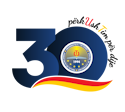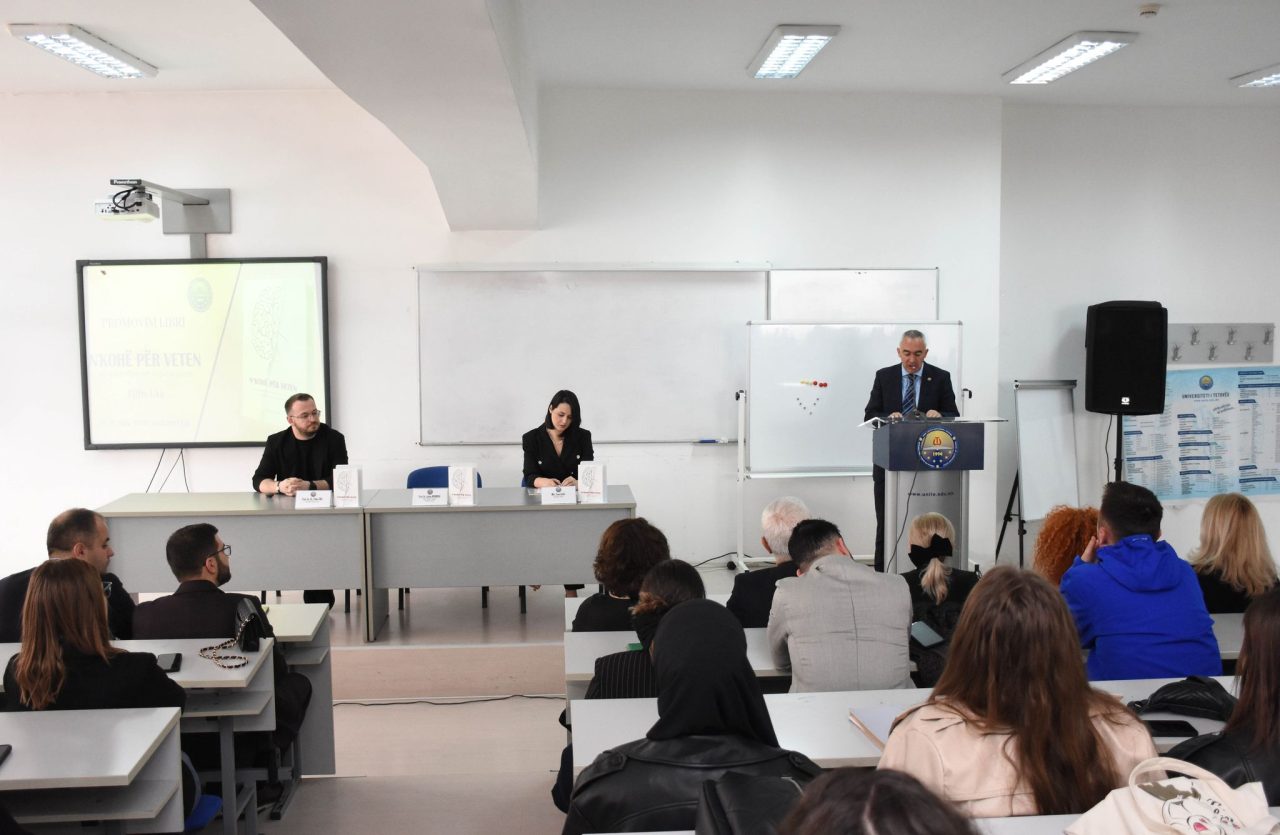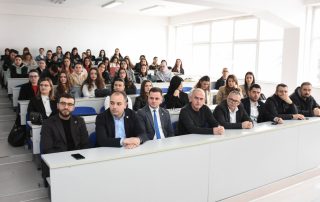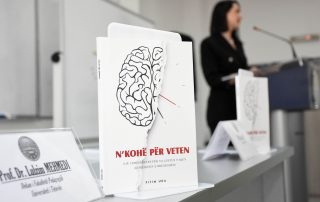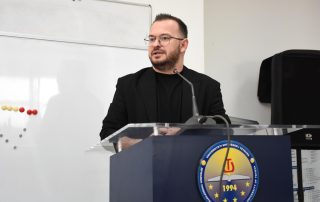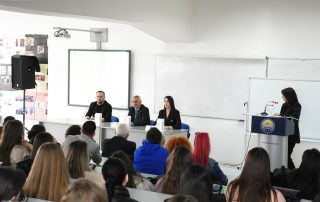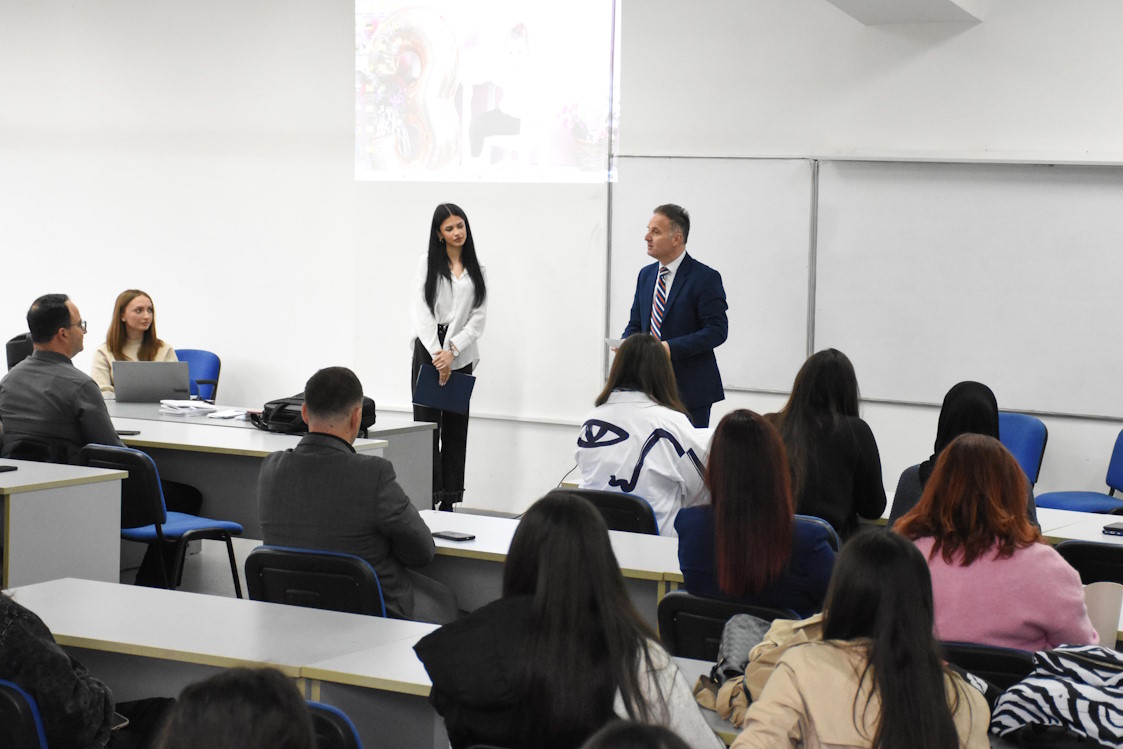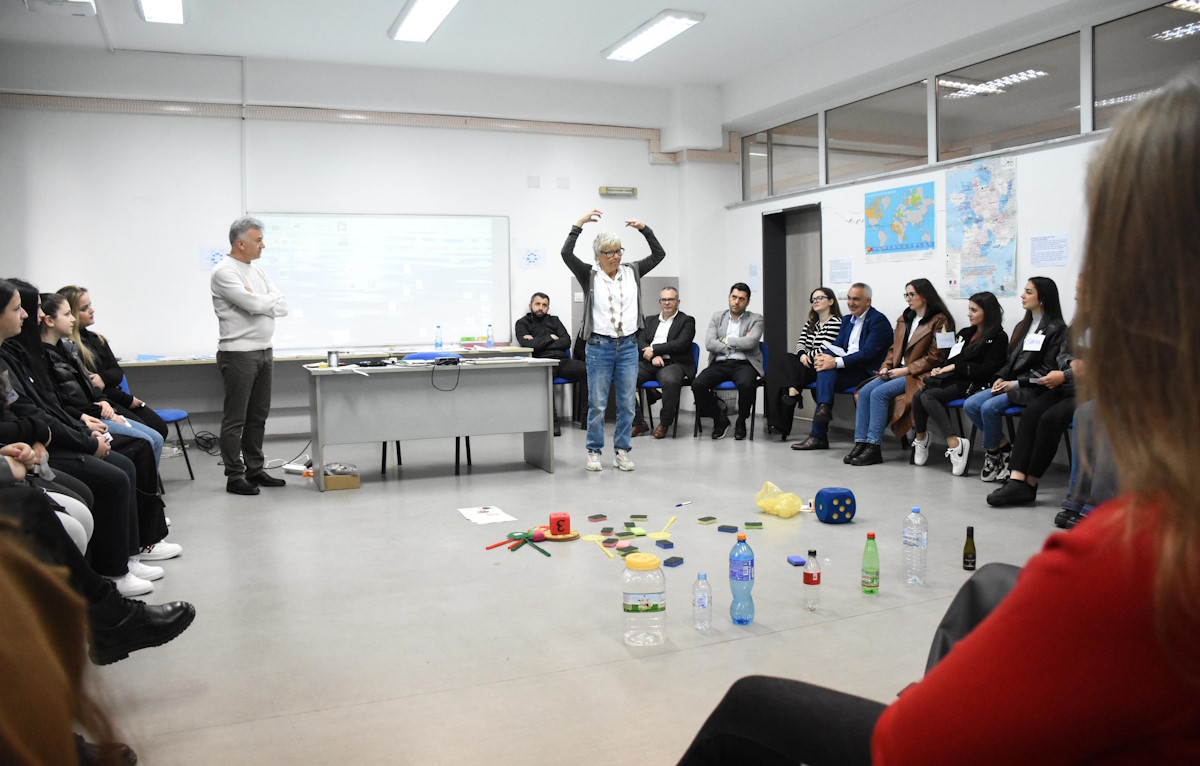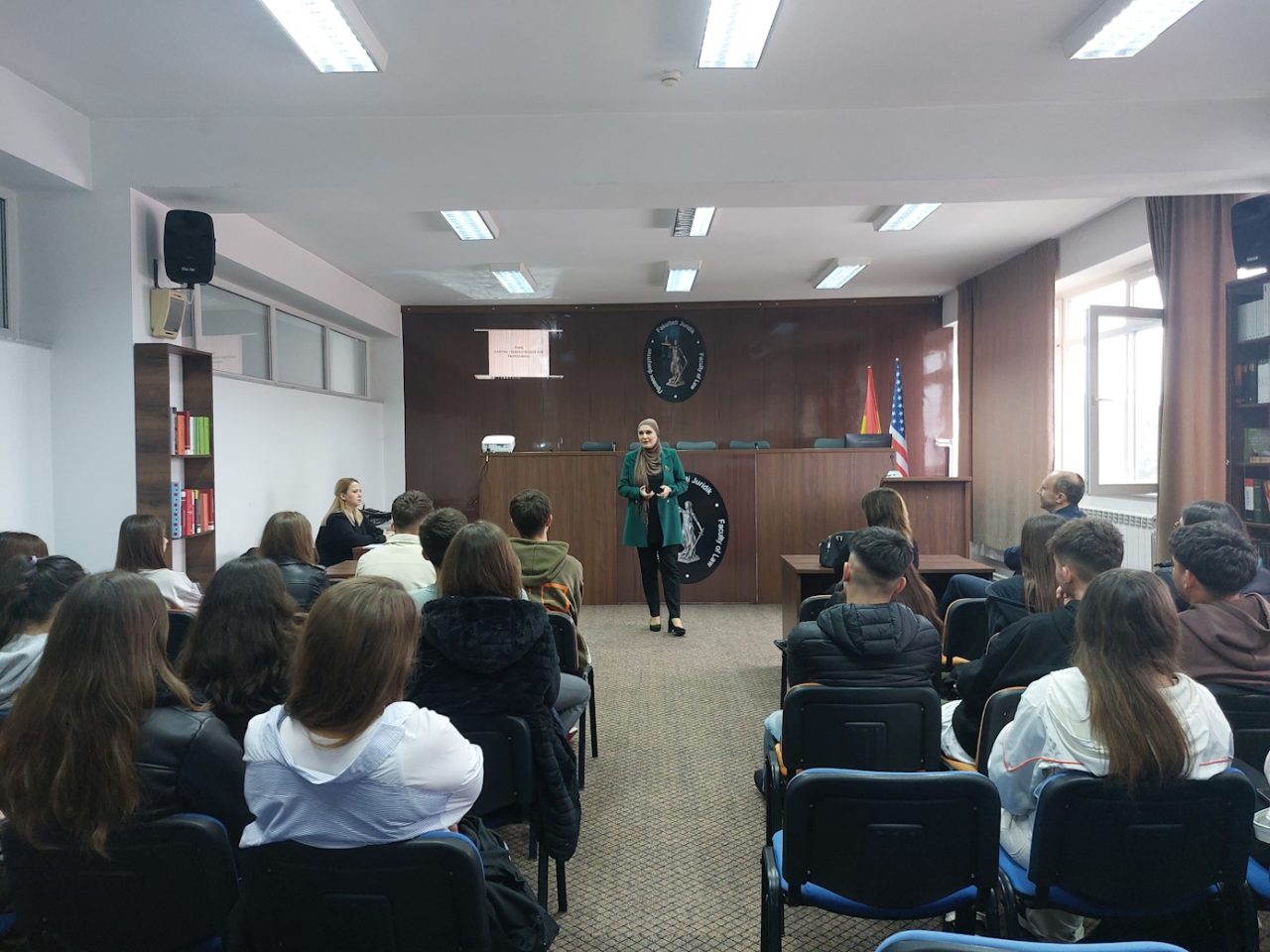Today at the University of Tetova, in the premises of the Faculty of Pedagogy, was promoted the book “N’kohë për veten: një udhërrëfyes për të gjetur paqen” (“In Time for Ourselves: A Guide to Finding Peace”) by the author PhD. Fitim Uka. This book presents Internal Cohesion Psychotherapy in a self-applicable and transformative version, dedicated to all readers: those who want to know themselves better and those who want to protect, strengthen and improve their mental health. This book, among other things, makes you think differently, makes you reflect and increase empathy.
The Dean of the Faculty of Pedagogy, Prof. Dr. Lulzim Mehmedi, stated that the book is undoubtedly a serious contribution to the protection of mental health and is an inspired and practical guide for all of us who are looking for ways to improve the quality of life, overcome crises, and ultimately achieve success. “As the Faculty of Pedagogy and the University of Tetova, we are honored to promote a book that encourages personal progress and dedication to self-development. Maintaining mental health should be a priority for all of us. It has a significant impact on our well-being, productivity, and relationships with others. It elevates the level of creativity and our ability to think and act in new and innovative ways. This is because when we are free from stress and tension, we have more space to explore ideas and reach our full potential. Through this work and the excellent efforts made by the author, it encourages us to reflect on ourselves, find our motivation and goals, and manifest our maximum potential on the path to a happier and more successful life. Therefore, as an institution, we strongly support inspiration and creativity in the pursuit of knowledge and personal growth. In this regard, we can confidently say that the book “N’kohë për veten” (“In Time for Ourselves”) fully aligns with our values and goals,” said the Dean of the Faculty of Pedagogy, Prof. Dr. Lulzim Mehmedi.
In the following, MSc. Tana Aliaj, a pedagogue from Tirana, provided a more detailed elaboration of the book. According to her, the book “N’kohë për veten” (“In Time for Ourselves”) is a manifesto about oneself and the life lived, as well as oneself and the desired lives. “The presentation of psychological principles in the book makes us aware and helps us break free from the vortex of “what if?! “It empowers us to rewrite our history and makes it easier for us to make peace with the past. At least once in our lives, all of us have had questions like: Would we dare to give a new meaning to our existence? And become what? To go where? And with whom? As you read the book, you will understand that yes, you can give a new meaning to your existence, without losing yourself, but rather becoming even more yourself. It enables you to connect with your authentic self, rooted in the need for acceptance and unconditional love”, emphasized a pedagogue from Tirana, MSc. Tana Aliaj.
The author of the book, PhD. Fitim Uka, first showed us a video recording that depicted human life from birth to death. Then, he delivered a presentation on the topic of “Internal Cohesion Psychotherapy”, encompassing all the vicissitudes related to the relevant topic. According to him, this book aims to assist the lay reader, someone who is not well-versed in psychology or knows little about it, as well as those who face emotional difficulties themselves or try to help others who are experiencing despair. “It is a book that helps us understand how to face the challenges that threaten the mind, and also how to create adaptive defense mechanisms against the dangers and ongoing threats to mental health. The book in your hands presents the psychotherapy of internal cohesion in an applicable self-help version that, if nothing else, prompts you to think differently, encourages reflection, or even increases empathy. Although the book may sometimes fall short, it can serve as the right starting point. It can be the path to well-being and peace – internal cohesion”,- emphasized the author of the book, PhD. Fitim Uka.
Among other things, this book promotes empathy to facilitate our understanding of the paths described by both ourselves and others. It confronts us with challenges to overcome and triumphs to celebrate, highlighting two crucial aspects of human complexity. The book encourages us to immerse ourselves in the narrative, challenge ourselves, think critically, and explore ideas beyond the boundaries of our comfort zones.
